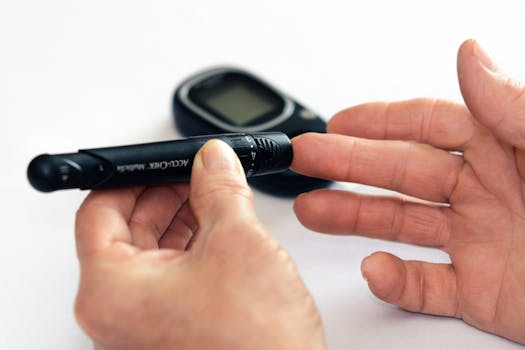Effective Management of Type 2 Diabetes Through Diet and Exercise
Type 2 diabetes is a chronic condition that affects millions of people worldwide. It is characterized by insulin resistance and high blood sugar levels, which can lead to serious health complications if not managed effectively. Fortunately, lifestyle changes, particularly in diet and exercise, play a crucial role in managing this condition. This article explores how effective management of type 2 diabetes can be achieved through dietary modifications and regular physical activity.
The Role of Diet in Managing Type 2 Diabetes
Diet is one of the most significant factors influencing blood sugar levels. A well-balanced diet can help maintain stable glucose levels and prevent complications associated with diabetes. Here are some dietary strategies that can be beneficial:
- Focus on Whole Foods: Incorporating whole grains, fruits, vegetables, lean proteins, and healthy fats can provide essential nutrients while helping to control blood sugar levels.
- Monitor Carbohydrate Intake: Carbohydrates have the most significant impact on blood sugar. It is essential to understand the types of carbohydrates and their effects on glucose levels. Complex carbohydrates, such as those found in whole grains, are preferable to simple sugars.
- Portion Control: Managing portion sizes can help prevent overeating and maintain a healthy weight, which is crucial for diabetes management.
- Limit Processed Foods: Processed foods often contain added sugars and unhealthy fats, which can spike blood sugar levels. Reducing these foods can lead to better health outcomes.
Case Study: The Impact of Dietary Changes
A study published in the journal Diabetes Care followed a group of individuals with type 2 diabetes who adopted a Mediterranean diet rich in fruits, vegetables, whole grains, and healthy fats. Over six months, participants experienced significant improvements in their HbA1c levels, a key indicator of long-term blood sugar control. This case illustrates the profound impact that dietary changes can have on diabetes management.
The Importance of Exercise
Regular physical activity is another cornerstone of effective diabetes management. Exercise helps improve insulin sensitivity, lowers blood sugar levels, and aids in weight management. Here are some recommended types of exercise:
- Aerobic Exercise: Activities such as walking, cycling, and swimming can help improve cardiovascular health and lower blood sugar levels.
- Strength Training: Building muscle through resistance training can enhance insulin sensitivity and promote better glucose control.
- Flexibility and Balance Exercises: Yoga and stretching can improve overall fitness and reduce stress, which is beneficial for diabetes management.
Statistics on Exercise and Diabetes
According to the American Diabetes Association, engaging in at least 150 minutes of moderate-intensity aerobic exercise per week can significantly improve blood sugar control. Additionally, a study found that individuals who combined diet and exercise interventions experienced a 58% reduction in the risk of developing type 2 diabetes compared to those who did not make lifestyle changes.
Creating a Sustainable Lifestyle
While dietary changes and exercise are essential, creating a sustainable lifestyle is crucial for long-term success. Here are some tips to help maintain these changes:
- Set Realistic Goals: Start with small, achievable goals to build confidence and motivation.
- Stay Consistent: Consistency is key. Incorporate healthy habits into your daily routine.
- Seek Support: Joining a support group or working with a healthcare professional can provide encouragement and accountability.
- Track Progress: Keeping a food and exercise journal can help monitor progress and identify areas for improvement.
Conclusion
Effective management of type 2 diabetes is achievable through a combination of dietary modifications and regular exercise. By focusing on whole foods, monitoring carbohydrate intake, and engaging in consistent physical activity, individuals can significantly improve their blood sugar control and overall health. The journey may require effort and commitment, but the benefits of a healthier lifestyle are well worth it. With the right strategies in place, managing type 2 diabetes can lead to a fulfilling and active life.
